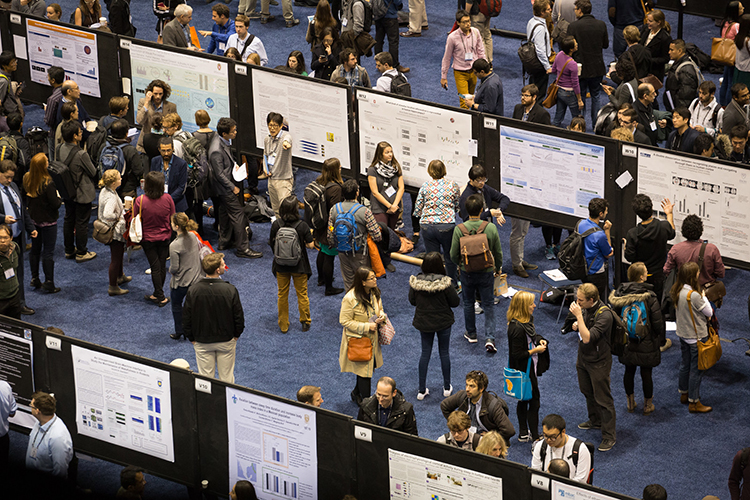
SfN Illustrates Importance of Nonhuman Primate Research at NIH Workshop
SfN members endorsed the critical value and need for continued, responsible nonhuman primate research during an NIH workshop held September 7. The event brought together experts in science, policy, ethics, and animal welfare to discuss nonhuman primate research and the oversight framework governing it. The daylong workshop illustrated the knowledge and advances gained from nonhuman primate research toward improving human health.
Leading up to the event, SfN worked with members of its Committee on Animals in Research to lead efforts to communicate to the public and media about the importance of nonhuman primate research in understanding and solving complex public health challenges. For example, SfN, along with other scientific societies, sponsored and promoted a white paper, The Critical Role of Nonhuman Primates in Medical Research, developed by the Foundation for Biomedical Research. FBR President Frankie Trull stated in the release of the report: “95 percent of the lab animals in scientific and medical research are rats and mice. Just half of 1 percent of research is conducted with nonhuman primates. That’s a tiny number. But their impact on our health is enormous.” Trull, who recently announced her retirement, will be presented with the SfN Public Advocacy Award at Neuroscience 2016 in San Diego.
A number of SfN members participated in the NIH workshop, including Bill Newsome, John Morrison, Mickey Goldberg, and Peter Strick. NIH Director Francis Collins, who kicked off the event, has noted previously that “research with nonhuman primates is an essential component of the NIH mission.” During the event, NIH Associate Director for Science Policy Carrie D. Wolinetz said NIH is committed to the welfare of all animals used in research and has numerous policies and procedures in place to protect those animals. She noted that NIH’s ethical policies regarding animal research, and particularly nonhuman primate research, are “robust” and that periodic review of those policies is appropriate.
In a letter to the editor of The New York Times that ran in conjunction with the meeting, Mar Sanchez, chair of the SfN Committee on Animals in Research, noted: “We scientists do indeed take very seriously our commitment and obligation for the responsible and compassionate use of these animals. The strict regulations established by oversight agencies are fully embraced by researchers and institutions. Based on fact — and compassion for both people and animals — we know that this is ultimately profoundly lifesaving work.”
Other activities undertaken by SfN in advance of the workshop include:
- Development of new articles for BrainFacts.org that highlight how nonhuman primate research has advanced science related to Huntington’s disease, brain-machine interface and the Zika virus, and SfN shared these articles frequently on its social media channels.
- Release of a statement by SfN President Hollis Cline affirming the vital need for responsible nonhuman primate research to advance our understanding of the brain and related diseases and disorders.
- Creation and distribution of FAQs on animals in research for the public, as well as preparation of media talking points for SfN spokespeople.
- Sharing of relevant information with members through the twice-monthly Neuroscience Nexus.
Consistently communicating about the importance of responsible animal research is vital to the scientific endeavor and one of the Society’s core advocacy priorities. SfN continues to monitor all topics around nonhuman primate research in the press and identify any potential issues that may signal more policy discussions.






















